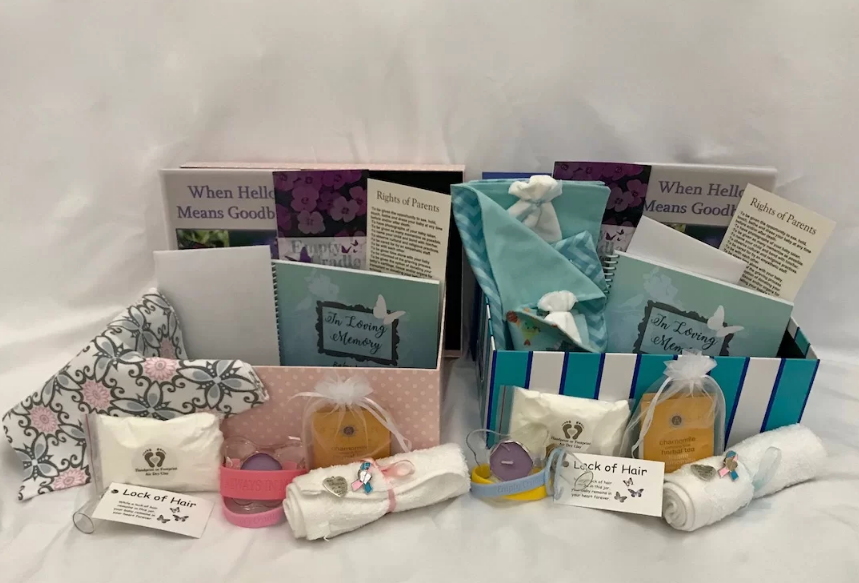Med Students for Memories helps relieve pain of infant loss

On her first shift as a medical student at Lyndon B. Johnson Hospital, Elisa Williams was faced with tragedy when a patient and family suffered the birth of a stillborn child.
“I was at LBJ and felt like I had no idea what to say or do,” Williams said. “We’d briefly gone over some of the complications and parent wishes on rounds, but nothing else was said before or after. It felt like I was missing something.”
A few months later, Williams experienced the heartbreak of child loss, again, when a family member had a stillborn baby with the same complication. After visiting with the family, she noticed the staff had handled the situation completely differently.
“She was given a sweet box with all the things her baby used during the delivery, along with donated items that she was able to show family members that never met her baby,” Williams said. “It was very tender. The difference between the experiences stuck with me, and Med Students for Memories was born from a conversation with Dr. Soraira Pacheco about what we might be able to do about it.”
Med Students for Memories aims to improve the infant loss etiquette for those rotating at LBJ Hospital for both families and trainees. Families who lose an infant are gifted memory boxes with items to remember their child, while medical students and residents are informed of the protocols in place to ensure a family’s wishes are understood and appropriately carried out.
“This is common practice at a lot of hospitals,” Williams said. “LBJ has some wonderful things in place, but we felt like we could support and improve those ongoing efforts. This is the kind of thing that gets overlooked when you’re dealing with a higher risk/lower income/minority demographic, but it does make a difference for these families. Grief needs a place to go, and having some memories to hold on to can make a difference, even if we can’t stop a tragic thing from happening. The patients at LBJ deserve it as much as anywhere.”
The initiative began by spreading the idea through word of mouth, and Williams quickly realized how incredible the response was going to be. Williams credits Pacheco, an assistant professor in the Department of Internal Medicine, for helping the program grow as well as it has.
“She’s been so supportive of this project and has helped to connect us with faculty to find out how we can be most useful,” Williams said. “She’s definitely the reason this idea has turned into such a rewarding effort.”
Med School for Memories quickly reached its initial goals and has set its sights on being able to further its impact. Moving forward, the group hopes to apply for and receive grants from the Texas Medical Association to help cover the cost of materials. They also hope to implement a “buy a box” initiative where people can create Amazon wish lists so others can purchase certain items to contribute.
“Other students have had great experiences at LBJ and have been really supportive of our efforts to support patients there,” Williams said. “It is humbling to realize how many people have been touched by infant loss and connect with what we’re hoping to do.”
If you would like to make a donation to Med Students for Memories, click here.